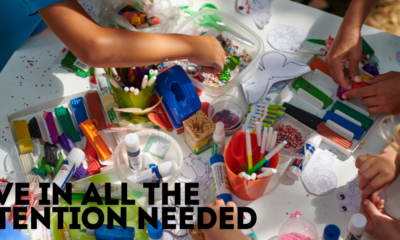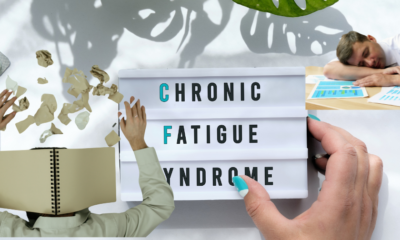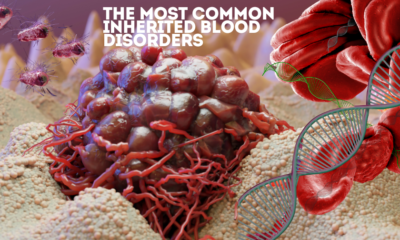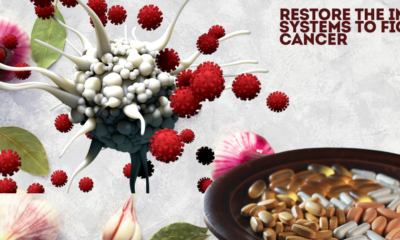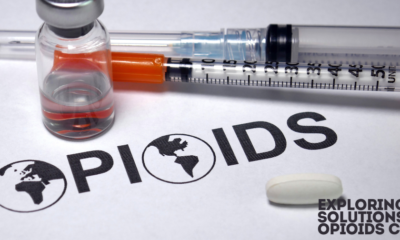Mental Health
Breaking Free from Substance Abuse: Resources and Strategies for Recovery
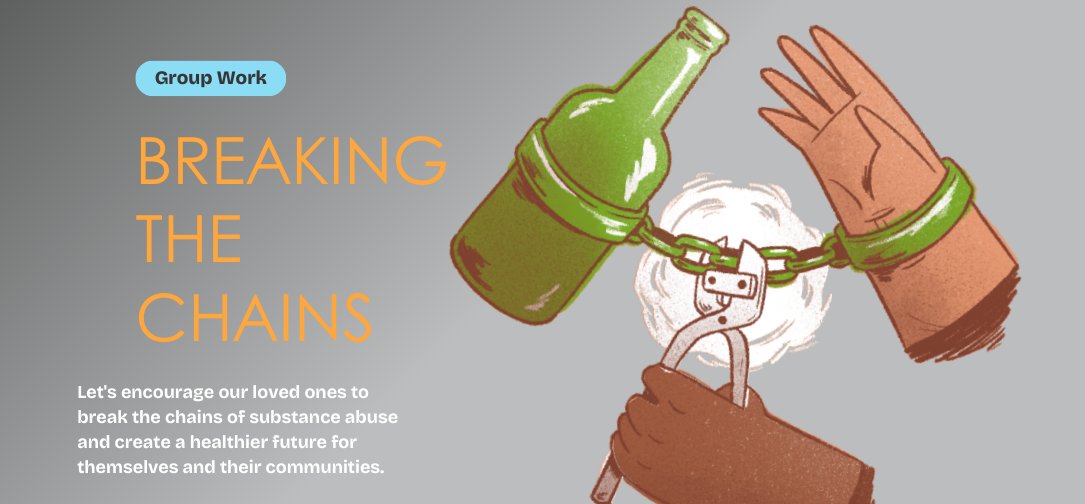
The journey to recovery from substance abuse is often long and challenging, but it is also gratifying. Substance abuse is a pervasive issue that affects millions of individuals worldwide, causing a ripple effect that impacts families, communities, and society as a whole. This article explores the nature of substance abuse, the challenges of overcoming addiction, and the resources and strategies available for individuals seeking to break free from substance abuse.
Understanding Substance Abuse
Substance abuse refers to the harmful or hazardous use of psychoactive substances, including alcohol, prescription medications, and illegal drugs. It is characterized by a pattern of repeated use despite harmful consequences, leading to physical dependence, psychological addiction, and a multitude of health, social, and economic problems.
Substance abuse can take many forms, ranging from occasional binge drinking to chronic drug use. The most commonly abused substances include:
- Alcohol: Often socially accepted, alcohol is one of the most widely abused substances. It can lead to addiction, liver disease, impaired judgment, and accidents.
- Opioids: Prescription painkillers like oxycodone, hydrocodone and illicit drugs like heroin fall under this category. Opioid addiction has reached epidemic levels in many parts of the world, particularly in the United States.
- Stimulants: This category includes drugs like cocaine, methamphetamine, and prescription stimulants such as Adderall. Stimulant abuse can lead to severe mental health issues, heart problems, and addiction.
- Marijuana: Though legalized in some regions, marijuana can still be addictive and impair cognitive function, especially with chronic use.
- Hallucinogens: Substances like LSD, psilocybin mushrooms, and MDMA (ecstasy) can alter perception, mood, and cognitive processes, sometimes leading to dangerous behaviors.
- Sedatives and Tranquilizers: These include benzodiazepines like Xanax and Valium, which can cause dependency and withdrawal symptoms.
The causes of substance abuse are multifaceted, involving a combination of genetic, environmental, psychological, and social factors. Stress, trauma, mental health disorders, and peer pressure are significant contributors. Understanding these underlying causes is crucial in developing effective strategies for recovery.
The Impact of Substance Abuse
Substance abuse has far-reaching consequences that extend beyond the individual. The effects are often devastating, impacting physical health, mental well-being, relationships, employment, and legal standing.
1) Physical Health: Prolonged substance abuse can lead to a range of health issues, including liver damage, heart disease, respiratory problems, and neurological impairments. Intravenous drug use increases the risk of infectious diseases like HIV/AIDS and hepatitis.
2) Mental Health: Substance abuse often co-occurs with mental health disorders such as depression, anxiety, bipolar disorder, and schizophrenia. It can exacerbate existing mental health conditions, creating a vicious cycle that complicates recovery.
3) Social Consequences: Addiction can strain relationships with family, friends, and colleagues. It often leads to isolation, financial difficulties, and legal issues, including arrests and incarceration.
4) Economic Impact: Substance abuse imposes a significant economic burden on society, including healthcare costs, lost productivity, and expenses related to law enforcement and criminal justice.
The Challenges of Recovery
Recovering from substance abuse is a complex and personal journey that involves more than just abstaining from the substance. It requires a holistic approach that addresses the physical, psychological, and social aspects of addiction.
1) Withdrawal Symptoms: One of the biggest hurdles in recovery is dealing with withdrawal symptoms, which can be severe and even life-threatening in some cases. Symptoms vary depending on the substance but may include anxiety, depression, nausea, seizures, and intense cravings.
2) Mental and Emotional Challenges: Overcoming addiction involves confronting the underlying psychological issues that contribute to substance abuse, such as trauma, low self-esteem, and coping mechanisms for stress.
3) Social Stigma: The stigma associated with addiction can deter individuals from seeking help. Fear of judgment, discrimination, and social rejection often prevents people from accessing the resources they need.
4) Relapse: Relapse is expected in recovery and can be disheartening. It is essential to understand that relapse is not a failure but a part of the recovery journey. Learning from setbacks and continuing the pursuit of sobriety is crucial.
Resources for Recovery
Fortunately, there are numerous resources available for individuals seeking to break free from substance abuse. These resources provide support, guidance, and tools to help individuals navigate the path to recovery.
1) Detoxification Programs: Detoxification, or detox, is the first step in many recovery programs. It involves clearing the substance from the body and managing withdrawal symptoms under medical supervision. Detox is often a prerequisite for other treatment modalities, ensuring the individual is physically stable.
2) Inpatient Rehabilitation: Inpatient or residential rehab provides a structured environment where individuals can focus solely on their recovery. These programs offer intensive therapy, medical care, and support groups, allowing individuals to address the root causes of their addiction in a safe and supportive setting.
3) Outpatient Programs: Outpatient rehab is a more flexible option that allows individuals to continue their daily lives while receiving treatment. These programs include individual and group therapy, education, and support, making them suitable for those with mild to moderate addiction who have a robust support system.
4) Counseling and Therapy: Various forms of therapy are integral to addiction treatment. Cognitive-behavioral therapy (CBT), dialectical behavior therapy (DBT), and motivational interviewing are commonly used to help individuals change their thought patterns and behaviors related to substance abuse. Therapy can be conducted individually, in groups, or with family members.
5) Support Groups: Support groups like Alcoholics Anonymous (AA), Narcotics Anonymous (NA), and SMART Recovery provide peer support and a sense of community. Sharing experiences and receiving encouragement from others who have faced similar challenges can be incredibly empowering.
6) Medication-Assisted Treatment (MAT): MAT combines medication with counseling and behavioral therapies to treat substance use disorders. Medications such as methadone, buprenorphine, and naltrexone can help reduce cravings and withdrawal symptoms, particularly for opioid addiction.
7) Sober Living Homes: Sober living homes offer a supportive, substance-free environment for individuals transitioning from rehab to independent living. These homes provide structure, accountability, and a community of peers working towards sobriety.
8) Online Resources and Telehealth: The digital age has made recovery resources more accessible than ever. Online therapy, virtual support groups, and educational resources provide flexibility and convenience for those who may not have access to traditional in-person services.
Strategies for Recovery
While resources provide the framework for recovery, success depends on the individual’s commitment and the strategies they employ to maintain sobriety. Here are some critical strategies for overcoming substance abuse:
1) Developing a Support Network: Surrounding oneself with supportive, positive influences is crucial in recovery. This network can include family, friends, therapists, and support group members who encourage sobriety and offer guidance.
2) Creating a Relapse Prevention Plan: A relapse prevention plan outlines specific strategies to avoid triggers and cope with cravings. This may include identifying high-risk situations, developing healthy coping mechanisms, and having a plan for seeking help if a relapse occurs.
3) Setting Realistic Goals: Setting achievable, incremental goals helps individuals stay motivated and measure their progress. These goals can be related to health, relationships, employment, or personal growth.
4) Practicing Mindfulness and Self-Care: Mindfulness practices such as meditation, yoga, and deep breathing can help manage stress and emotional triggers. Self-care routines, including exercise, proper nutrition, and adequate sleep, are essential for physical and mental well-being.
5) Addressing Underlying Mental Health Issues: Treating co-occurring mental health disorders is critical to preventing relapse. Integrated treatment that addresses both addiction and mental health issues provides a more comprehensive approach to recovery.
6) Building New Hobbies and Interests: Finding new hobbies and interests can help replace the void left by substance use. Engaging in activities like art, sports, volunteering, or learning new skills can provide a sense of purpose and fulfillment.
7) Maintaining Accountability: Accountability can be maintained through regular check-ins with a therapist, sponsor, or support group. Tracking progress and openly discussing challenges helps keep individuals focused on their recovery goals.
8) Seeking Continuous Education: Staying informed about addiction and recovery can empower individuals to make better choices. Educational resources, workshops, and seminars provide valuable insights and tools for maintaining sobriety.
The Role of Family and Community in Recovery
The support of family and community plays a pivotal role in the recovery process. Family members often serve as the primary support system, providing emotional, financial, and practical assistance. However, family dynamics can also be complicated by the history of addiction, requiring careful navigation and, sometimes, professional intervention.
1) Family Therapy: Family therapy can help address issues such as enabling behaviors, codependency, and communication breakdowns. It provides a safe space for family members to express their concerns, set boundaries, and learn how to support their loved one’s recovery without compromising their own well-being.
2) Community Support: Community involvement can provide a sense of belonging and purpose, which are crucial for long-term recovery. Community centers, religious organizations, and volunteer groups offer opportunities to connect with others and build a sober social network.
3) Education and Advocacy: Educating the community about addiction can help reduce stigma and create a more supportive environment for those in recovery. Advocacy efforts can also lead to better policies, funding, and resources for addiction treatment and prevention.
Preventing Substance Abuse Relapse
Relapse prevention is a critical aspect of long-term recovery. Relapse does not signify failure; rather, it is an opportunity to reassess and strengthen one’s approach to sobriety. Key components of relapse prevention include:
1) Identifying Triggers: Understanding the triggers that lead to substance use, whether they are emotional, social, or environmental, allows individuals to develop strategies to avoid or cope with them.
2) Coping Skills: Developing healthy coping skills, such as problem-solving, assertiveness, and emotional regulation, can help manage stress and reduce the urge to use substances.
3) Ongoing Support: Continuous engagement with support groups, therapy, and sober networks helps maintain motivation and accountability. Regular check-ins and ongoing treatment can catch warning signs early and provide timely interventions.
4) Healthy Lifestyle Choices: Maintaining a balanced lifestyle that includes physical activity, proper nutrition, and adequate rest supports overall well-being and resilience against relapse.
5) Mindfulness and Self-Awareness: Practicing mindfulness can help individuals stay present and aware of their thoughts, emotions, and urges. This awareness allows for better decision-making and a greater ability to manage cravings.
6) Setting Boundaries: Establishing clear boundaries with people, places, and situations associated with substance use is essential. This may involve avoiding certain social circles, setting limits on stressful activities, and prioritizing self-care.
Conclusion
Breaking free from substance abuse is a challenging yet attainable goal that requires courage, perseverance, and a comprehensive approach. Recovery is not a one-size-fits-all journey; it is deeply personal and unique to each individual. By understanding the complexities of addiction, leveraging available resources, and employing effective strategies, individuals can overcome substance abuse and build fulfilling, sober lives.
The journey to recovery is not walked alone. It involves the collective efforts of individuals, families, communities, and professionals working together to support those affected by substance abuse. Through compassion, education, and advocacy, we can create a society that not only understands the struggles of addiction but also celebrates the triumphs of recovery.
For anyone struggling with substance abuse, know that help is available, and a path to a healthier, happier life is within reach. With the right resources, strategies, and support, breaking free from substance abuse is possible. The first step is to reach out, take action, and believe in the possibility of change.
-

 Business5 days ago
Business5 days agoS&P 500 Soars in Best May in Decades Amid Tariff Relief and Nvidia’s Surge
-

 Healthcare7 days ago
Healthcare7 days agoAttention Economy Arms Race: Reclaim Your Focus in a World Designed to Distract You
-

 Immigration5 days ago
Immigration5 days agoTrump’s Immigration Crackdown: Legal Battles and Policy Shifts
-

 Business5 days ago
Business5 days agoUS Stock Market Soars in May Amidst Tariff Tensions and Inflation Worries
-

 Government5 days ago
Government5 days agoTrump Administration’s Government Reshaping Efforts Face Criticism and Legal Battles
-

 Business5 days ago
Business5 days agoTrump’s Tariffs: A Global Economic Reckoning
-

 Foreign Policy3 days ago
Foreign Policy3 days agoInside Schedule F: Will Trump’s Federal Workforce Shake-Up Undermine Democracy?
-

 Press Release2 days ago
Press Release2 days agoIn2space Launches Campaign to Make Space Travel Accessible for All




